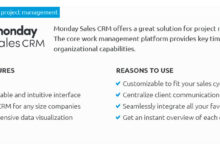real estate brokerage crm systems: 7 Ultimate Power Tools for 2024
In today’s fast-paced real estate market, the right technology can make or break a brokerage. Enter real estate brokerage CRM systems—your ultimate weapon for streamlining operations, boosting client relationships, and scaling success with precision and power.
1. Understanding Real Estate Brokerage CRM Systems

A Customer Relationship Management (CRM) system tailored for real estate brokerages is more than just a digital address book. It’s a centralized hub that manages leads, tracks client interactions, automates marketing, and streamlines transaction coordination. Unlike generic CRMs, real estate brokerage CRM systems are built with industry-specific workflows in mind—integrating lead capture from multiple sources, follow-up automation, compliance tracking, and team collaboration tools.
What Sets Real Estate CRMs Apart?
General CRMs like Salesforce or HubSpot are powerful, but they lack the nuanced features required by real estate professionals. Real estate brokerage CRM systems come pre-loaded with:
- Automated lead routing based on agent availability or expertise
- Transaction timeline tracking with milestone alerts
- Compliance-ready communication logs for regulatory audits
- Integration with MLS feeds and property portals
- Drip email and SMS campaigns tailored to buyer/seller journeys
“A real estate CRM isn’t just about managing contacts—it’s about managing relationships at scale,” says industry analyst Laura Thompson of PropTech Insights.
Core Components of a Brokerage CRM
To be truly effective, a real estate brokerage CRM system must include several foundational components:
- Lead Management: Capture, score, and assign leads automatically from websites, Zillow, Realtor.com, and social media.
- Contact Database: Store detailed client profiles including preferences, communication history, and transaction status.
- Automation Engine: Trigger follow-ups, appointment reminders, and nurture sequences based on user behavior.
- Reporting & Analytics: Track conversion rates, agent performance, and ROI on marketing campaigns.
- Team Collaboration Tools: Shared calendars, internal messaging, and task delegation features.
2. Why Every Modern Brokerage Needs a CRM System
Gone are the days when brokerages could rely solely on spreadsheets and personal relationships. The modern real estate landscape demands scalability, consistency, and data-driven decision-making—all of which are enabled by robust real estate brokerage CRM systems.
Scaling Without Sacrificing Service
As brokerages grow, maintaining high-touch client service becomes exponentially harder. A CRM ensures that no lead falls through the cracks. Automated workflows handle initial outreach, while intelligent routing directs hot leads to the most qualified agents. This means even as volume increases, client experience remains consistent and personalized.
Reducing Administrative Overhead
Agents spend up to 30% of their time on administrative tasks—scheduling, data entry, follow-up emails. Real estate brokerage CRM systems automate much of this burden. For example, when a lead fills out a form on a brokerage website, the CRM can:
real estate brokerage crm systems – Real estate brokerage crm systems menjadi aspek penting yang dibahas di sini.
- Instantly send a personalized welcome email
- Schedule a follow-up task for the assigned agent
- Add the lead to a drip campaign based on their property interest
- Sync with the agent’s calendar for automatic appointment booking
This level of automation frees agents to focus on high-value activities like showings, negotiations, and client meetings.
Improving Lead Conversion Rates
Studies show that brokerages using CRM systems convert leads up to 27% more effectively than those relying on manual processes. This is due to timely follow-ups, personalized communication, and better lead nurturing. According to the National Association of Realtors (NAR), nearly 68% of agents who use a CRM report higher client satisfaction.
3. Top 7 Real Estate Brokerage CRM Systems in 2024
With dozens of options on the market, choosing the right CRM can be overwhelming. Below is a curated list of the top 7 real estate brokerage CRM systems based on functionality, scalability, integration capabilities, and user feedback.
1. kvCORE by Real Geeks
kvCORE has emerged as a dominant player in the real estate tech space, especially for brokerages focused on lead generation and conversion. Built on a foundation of AI-driven insights, kvCORE offers:
- Instant lead response with AI-powered chat and voice bots
- Automated website personalization based on visitor behavior
- Advanced lead scoring and routing
- Full transaction management suite
- Seamless integration with Zillow, Realtor.com, and social ads
One of its standout features is the “Instant Offer” tool, which allows brokerages to provide automated home valuation estimates directly through the CRM. Real Geeks reports that brokerages using kvCORE see a 40% increase in lead conversion.
2. LionDesk
LionDesk (formerly Follow Up Boss) is renowned for its user-friendly interface and powerful automation engine. It’s particularly popular among mid-sized brokerages and teams. Key features include:
- Customizable email and SMS drip campaigns
- Video messaging for personalized outreach
- Task automation with deadline tracking
- Client portal for document sharing and e-signatures
- Integration with 100+ tools including Mailchimp, Zapier, and DocuSign
LionDesk’s “Campaigns” feature allows brokerages to create automated nurture sequences for different client types—first-time buyers, sellers, investors, etc.—ensuring consistent engagement without manual effort.
real estate brokerage crm systems – Real estate brokerage crm systems menjadi aspek penting yang dibahas di sini.
3. Sierra Interactive
Sierra Interactive is a full-service CRM and marketing platform designed specifically for real estate brokerages. It combines CRM functionality with lead generation services, making it ideal for brokerages that want an all-in-one solution. Features include:
- Proprietary lead generation through direct mail and digital campaigns
- Automated follow-up sequences with phone, email, and text
- Team-based lead distribution and performance tracking
- Custom landing pages and IDX websites
- Dedicated support and onboarding specialists
What sets Sierra apart is its hybrid model: it doesn’t just provide the CRM—it also supplies qualified leads. This makes it a powerful choice for brokerages looking to grow their pipeline quickly.
4. Follow Up Boss (Now Part of LionDesk)
Although now integrated into LionDesk, Follow Up Boss remains a benchmark in real estate CRM systems. Known for its simplicity and speed, it was one of the first CRMs to offer mobile-first lead management. Its legacy features include:
- One-click calling and texting from the dashboard
- Automatic lead import from lead sources
- Team collaboration with shared notes and tasks
- Robust reporting on lead sources and agent performance
While the brand has been rebranded under LionDesk, many brokerages still refer to it as a standalone solution due to its proven track record.
5. Wise Agent
Wise Agent is a cloud-based CRM that emphasizes ease of use and affordability. It’s particularly popular among independent brokers and small teams. Key features include:
- Unlimited users on all plans (a rare feature in the CRM space)
- Automated birthday and anniversary greetings
- Mobile app with offline access
- Email marketing templates with tracking
- Integration with Zillow, Trulia, and Facebook Lead Ads
Wise Agent also offers a unique “CRM Concierge” service, where a dedicated specialist helps set up campaigns and workflows—a valuable resource for tech-shy brokers.
6. Propertybase
Propertybase is a more advanced, enterprise-grade CRM built on the Salesforce platform. It’s ideal for large brokerages and franchises that need deep customization and scalability. Features include:
real estate brokerage crm systems – Real estate brokerage crm systems menjadi aspek penting yang dibahas di sini.
- Custom workflows and automation rules
- Advanced analytics and forecasting tools
- Multi-office management with role-based permissions
- Native integration with Salesforce for extended functionality
- API access for custom integrations
Because it’s built on Salesforce, Propertybase offers unparalleled flexibility—but at the cost of complexity. It requires more setup and training than other systems, making it better suited for tech-savvy teams.
7. Chime
Chime is a fast-growing CRM that combines lead generation, marketing automation, and transaction management in one platform. It’s particularly strong in automated lead response and AI-driven insights. Features include:
- AI-powered lead qualification and routing
- Automated website chat with human handoff
- Smart dialer with call recording and transcription
- Transaction coordination tools
- Marketing automation with A/B testing
Chime’s “Instant Connect” feature ensures that leads are contacted within seconds of submission, significantly increasing conversion chances. According to Chime, brokerages using their system achieve a 50% faster response time compared to industry averages.
4. Key Features to Look for in Real Estate Brokerage CRM Systems
Not all CRM systems are created equal. When evaluating real estate brokerage CRM systems, focus on features that directly impact lead conversion, team efficiency, and client satisfaction.
Lead Capture & Routing Automation
The ability to capture leads from multiple sources (website forms, social media, portals) and automatically assign them to the right agent is critical. Look for CRMs that offer:
- Instant lead import via API or Zapier
- Round-robin or skill-based lead distribution
- Lead scoring based on engagement level
- Geofencing to assign leads by location
Without automated routing, leads can sit unattended for hours—killing conversion chances.
Multi-Channel Communication Tools
Modern clients expect to be reached on their preferred channel—email, text, or phone. The best real estate brokerage CRM systems offer integrated communication tools, including:
real estate brokerage crm systems – Real estate brokerage crm systems menjadi aspek penting yang dibahas di sini.
- Click-to-call functionality
- Mass texting with compliance safeguards
- Personalized video messaging
- Two-way SMS with opt-out tracking
These tools ensure consistent, compliant, and personalized outreach at scale.
Transaction Management Integration
A CRM shouldn’t just manage leads—it should also support the entire transaction lifecycle. Look for systems that include or integrate with transaction management tools, allowing agents to:
- Track contract deadlines and contingencies
- Share documents securely with clients
- Collect e-signatures
- Coordinate with lenders, inspectors, and title companies
This reduces the need for multiple platforms and minimizes the risk of missed deadlines.
5. How CRM Systems Improve Team Collaboration in Brokerages
One of the most underrated benefits of real estate brokerage CRM systems is their ability to foster team collaboration. In a typical brokerage, agents, transaction coordinators, marketing staff, and leadership all need access to the same data—but often work in silos.
Centralized Data for Seamless Handoffs
A CRM acts as a single source of truth. When a lead is converted, the transaction coordinator can immediately access the client’s history, preferences, and communication logs. This eliminates redundant questions and ensures a smooth handoff from sales to closing.
Role-Based Access & Accountability
Advanced CRM systems allow administrators to set role-based permissions. For example:
- Agents can view and update their own leads
- Team leaders can monitor performance metrics
- Admins can generate reports and adjust workflows
This ensures data security while promoting accountability. Tasks and deadlines can be assigned within the CRM, with automated reminders to keep everyone on track.
real estate brokerage crm systems – Real estate brokerage crm systems menjadi aspek penting yang dibahas di sini.
Internal Communication & Task Management
Many real estate brokerage CRM systems include built-in messaging and task management. Instead of relying on Slack or email chains, teams can communicate directly within the CRM. For example:
- An agent can tag a transaction coordinator to request a contract review
- A manager can assign a follow-up task to an underperforming agent
- Marketing teams can request client testimonials directly from the dashboard
This keeps all communication contextually linked to the client file, reducing confusion and improving efficiency.
6. Integrations That Maximize CRM Effectiveness
A standalone CRM is useful, but its true power is unlocked through integrations. The best real estate brokerage CRM systems connect seamlessly with other tools in your tech stack.
Website & IDX Integration
Your CRM should sync with your brokerage website and IDX feed. This allows for:
- Automatic lead capture from property search forms
- Personalized website content based on visitor behavior
- Dynamic property recommendations in email campaigns
For example, if a visitor searches for “3-bedroom homes in Austin,” the CRM can tag them accordingly and trigger a targeted drip campaign.
Email & Marketing Automation Platforms
Integration with tools like Mailchimp, Constant Contact, or ActiveCampaign enhances your marketing capabilities. However, many modern CRMs now include native email marketing, reducing the need for third-party tools. Look for:
- Drag-and-drop email builders
- A/B testing for subject lines
- Open and click tracking
- Automated follow-ups based on engagement
Transaction & Document Management Tools
Integrations with Dotloop, DocuSign, or Skyslope allow for seamless document handling. When a client signs an agreement in the CRM, it can automatically be routed to the transaction management system, reducing manual data entry and errors.
real estate brokerage crm systems – Real estate brokerage crm systems menjadi aspek penting yang dibahas di sini.
Analytics & Business Intelligence
Connecting your CRM to Google Analytics, Salesforce, or custom BI tools allows for deeper insights. You can track:
- Which lead sources generate the most closed deals
- Agent conversion rates by lead type
- ROI on advertising campaigns
- Client lifetime value
These insights help brokerages make data-driven decisions about marketing spend, agent training, and growth strategy.
7. Implementing a CRM: Best Practices for Brokerages
Choosing a CRM is just the first step. Successful implementation requires planning, training, and ongoing optimization.
Start with Clear Goals
Before selecting a CRM, define what you want to achieve. Is it higher lead conversion? Better team collaboration? Reduced admin time? Your goals will determine which features are most important.
Involve Your Team Early
Agents are more likely to adopt a CRM if they feel involved in the decision. Conduct demos, gather feedback, and appoint “CRM champions” within the team to drive adoption.
Invest in Training & Onboarding
Even the most intuitive CRM requires training. Schedule onboarding sessions, create quick-reference guides, and offer ongoing support. Some vendors, like Sierra Interactive and Wise Agent, offer free onboarding specialists—take full advantage.
Monitor Usage & Optimize
After launch, track key metrics like login rates, lead entry volume, and task completion. Identify bottlenecks and adjust workflows accordingly. Regularly review reports to ensure the CRM is delivering ROI.
real estate brokerage crm systems – Real estate brokerage crm systems menjadi aspek penting yang dibahas di sini.
What is a real estate brokerage CRM system?
A real estate brokerage CRM system is a specialized software platform designed to help real estate firms manage leads, client relationships, transactions, and team collaboration. It automates marketing, tracks communication, and centralizes data to improve efficiency and conversion rates.
How do CRM systems improve lead conversion?
CRM systems improve lead conversion by enabling instant follow-up, personalized communication, automated nurture campaigns, and intelligent lead routing. Studies show that timely response (within 5 minutes) can increase conversion chances by up to 400%.
Can small brokerages benefit from CRM systems?
Absolutely. Many CRM systems, like Wise Agent and LionDesk, offer affordable plans with unlimited users, making them ideal for small teams. Even solo brokers can benefit from automation and lead management features.
Are CRM systems compliant with real estate regulations?
real estate brokerage crm systems – Real estate brokerage crm systems menjadi aspek penting yang dibahas di sini.
Yes, reputable real estate brokerage CRM systems include compliance features such as TCPA compliance for texting, audit trails, opt-out management, and secure data storage. Always verify that your CRM meets local and federal regulations.
How much do real estate brokerage CRM systems cost?
Pricing varies widely. Entry-level systems start at $29/user/month (e.g., Wise Agent), while enterprise platforms like Propertybase can cost $100+/user/month. Some, like Sierra Interactive, charge a flat monthly fee regardless of team size.
Real estate brokerage CRM systems are no longer optional—they’re essential for any brokerage aiming to compete in today’s digital-first market. From automating lead response to enhancing team collaboration and driving higher conversions, the right CRM can transform how your business operates. By understanding your needs, evaluating top platforms, and implementing best practices, you can choose a system that not only meets your current demands but scales with your future growth. The power to elevate your brokerage is just a few clicks away.
Further Reading:



